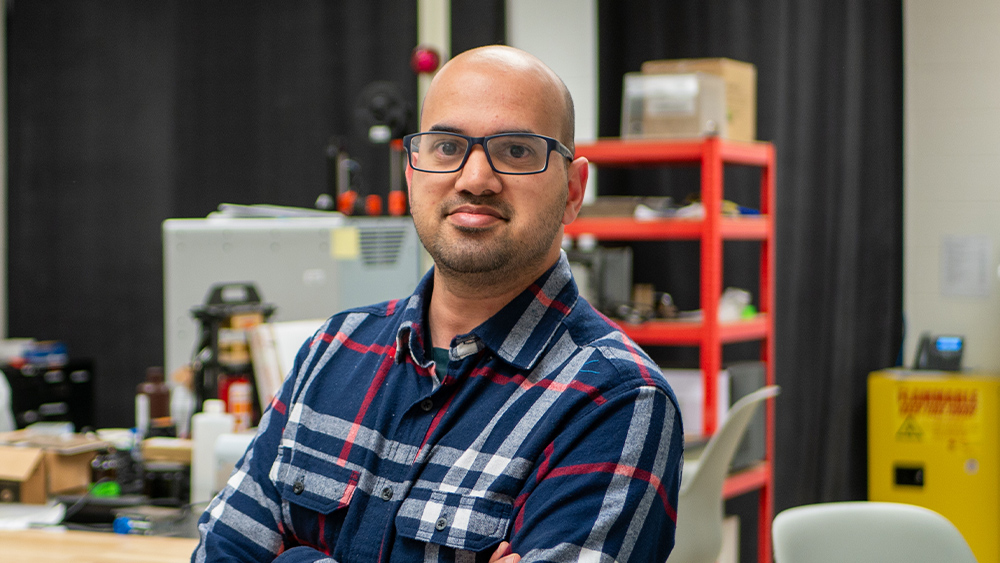
One’s past often lays the foundation for future success. Former chemical engineering student Dr. Aashish Priye received the Faculty Early Career Development (CAREER) Award from the National Science Foundation (NSF) in January for his research influenced by his time at Texas A&M University.
The CAREER award is one of the most prestigious awards for up-and-coming researchers. The grant provides funding to support promising integrated research and education projects.
Priye’s research involves understanding and harnessing the behavior of fluids on a small scale. He said this area, known as microfluidics, can be used to make better medical diagnostic devices.
Priye’s research was significantly influenced by the experience he gained while working in the lab of Dr. Victor Ugaz, interim department head of the Artie McFerrin Department of Chemical Engineering. From there, Priye learned to apply his expertise in fluid mechanics and molecular biology to develop novel approaches for infectious disease diagnostics.
“During my research, I was very privileged to find an advisor that got me excited about research and showed me that one could do research in a fun and exciting way,” Priye said. “I started out as a computational researcher, and my work slowly transcribed into engineering new experimental setups and devices for an important biological application. This ultimately led to the development of portable polymerase chain reaction (PCR) machines that can be deployed on drones for rapid delivery of medical diagnostics.”
While studying at Texas A&M, he remembers looking up to Ugaz for his unique research approach. This inspired Priye to pursue a career as a professor, a dream that became a reality in 2018 when he joined the faculty at the University of Cincinnati in Ohio.
“We are thrilled to see former students from our graduate program achieve success in academia,” Ugaz said. “Placing our alumni in faculty positions empowers them to lead groundbreaking research and train the next generation of chemical engineers.”
Collecting sufficient data was crucial to assembling a successful proposal for the NSF grant applications.
“You want to apply at a time when you have enough data that you can tell a good story,” Priye said. “I had some new and mature research ideas that had received positive feedback from other experts, which allowed me to confidently include them in this research proposal.”
Since receiving his Ph.D. from Texas A&M in 2015, Priye has expanded his research to study other applications of microfluidics and PCR-like testing.
“We can detect infections in humans by effectively detecting trace among of foreign DNA and RNA in human samples using bimolecular reactions like PCR and complex and bulky instruments like the centrifuges, heaters and signal readers,” Priye said. “One of the goals of our research lab is to make diagnostics more simple and inexpensive.”
Priye’s lab is working on optimizing the biochemistry of a complex reaction – called LAMP – that can serve as an alternative to PCR with much simpler instrumentation. His lab is also developing novel ways to heat small fluid volumes with magnets that can, in principle, work without electricity. Finally, to distinguish between positive and negative samples, he proposes using a smartphone to take a picture of the sample instead of using lab instruments. Taken together, a diagnostic platform can be engineered to provide inexpensive and rapid testing.